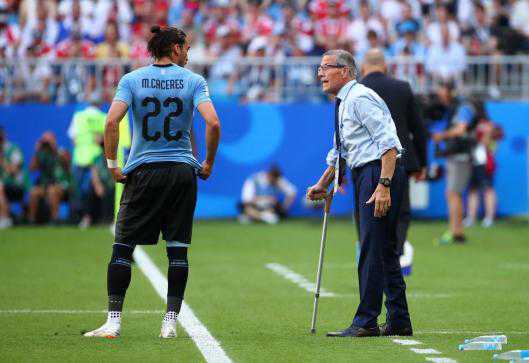Tabarez brings Uruguay in from the wilderness
06 July, 2018

Oscar Tabarez began his second stint as Uruguay coach in May 2006, one month before the World Cup. But they were not going to Germany -- in fact, they struggled even to find anyone who would play them in friendlies.
"We were hardly competing internationally," he said in one interview. "We had to travel to the most distant parts of the world just to have matches."
Meanwhile, their training base outside Montevideo was nicknamed "the Low Performance Centre" by players who complained of cold rooms and lumpy mattresses.
Uruguay, who had lost to Australia in the playoff for a place in Germany, were in the wilderness.
Nobody would say that of the team nowadays.
Tabarez is still in charge 12 years on, having led them to one World Cup semi-final, one round of 16 and the Copa America title in 2011. On Friday, they face France in the quarter-finals of the 2018 World Cup.
Not even ill-health has stopped the 71-year-old who was expected to resign in 2016 after he was diagnosed with a rare neurological disease known as Guillain-Barre syndrome but has carried on regardless with the help of a walking stick or electric wheelchair.
Tabarez is more than just the national team coach and has effectively taken charge of youth development in Uruguay in what has become known as the "Tabarez process".
In an interview with Reuters 10 years ago, Tabarez, who also coached Uruguay at the 1990 World Cup in Italy, outlined his plans for football in the country and the challenge facing him.
He spoke of the importance of keeping the under-20 and Olympic teams active and bringing players over from Europe to receive additional coaching and keep them in touch.
The subject matter extended to pressure exerted by parents on their children to make it as professionals which turned matches even at under-10 level into battlefields.
"There are more or less 200,000 boys playing football in Uruguay, of this only 0.14 percent may have a possibility of going to Europe," he said. "The parents are making the wrong gamble and we have to make them aware of these facts."
